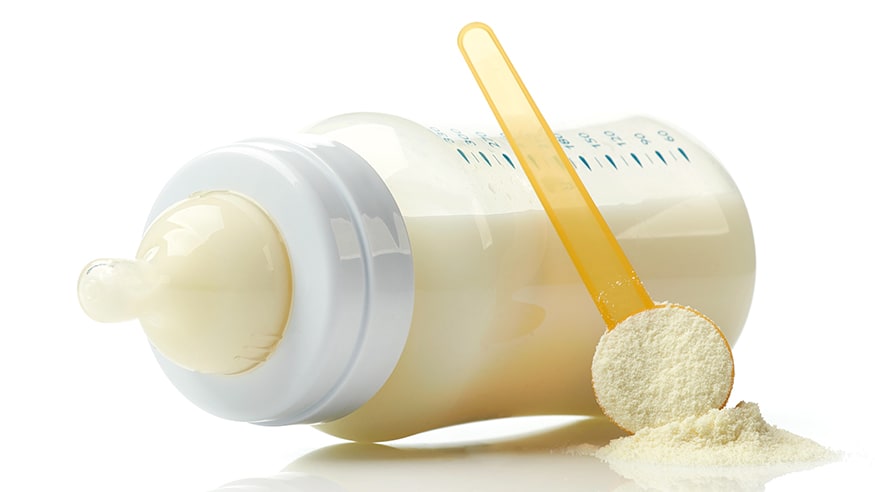Following normal breast milk handling and storage recommendations, formula milk will seldom go wrong. It is possible, but the most common outcome is vomiting the spoilt milk and having diarrhea. Vomiting and diarrhea are the first symptoms if your kid ingests tainted formula milk. Vomiting is a way for your baby’s body to eliminate food that has gone bad. Some infants may experience a fever after vomiting, while others can return to their routine.

What Happens If a Baby Drinks Spoiled Formula Milk?
Babies who drink spoiled formula milk might get stomach pain, diarrhea, and vomiting. Usually, if you keep the formula for a few hours at room temperature or if germs in the milk formula powder exist, the number of bacteria will increase exponentially each hour.
Diarrhea is a natural way to cleanse your baby’s body if she has consumed tainted formula milk. However, vomiting isn’t the best way to get rid of food that’s been spoiled. Both processes can cause your baby to become weak and dehydrated, impacting how she feeds. As soon as you notice your infant vomiting regularly, you should give your child some water to help him rehydrate or seek medical attention. Foodborne disease can be increased if a baby ingests outdated formula, although this is highly unusual. If your baby experiences severe vomiting, diarrhea, or fever, she should be sent to the doctor as soon as possible. Expired formula powder should be thrown away if it’s discolored or smells stale.
Label the bottles of formula to keep your infant from ingesting expired formula. Write down the day and time the formula was created as you’d with expressed breast milk. To avoid spreading infection and unnecessary waste, have your spouse or caregiver know which to use first to do their part. In this way, you’re instructing your baby’s caregivers to give him the older formula first rather than the newer one. To avoid someone else accidentally giving your kid your old formula, throw it away immediately. Preparation and storage procedures for chilled formula milk are available. Studies by mothers and physicians have revealed that you may store formula milk at the correct temperature for up to 24 hours.
Having a decent formula storage plan is essential for a nursing mother. Keep everything that might make your infant ill away from the area where you prepare your formula. An ancient formula is a good illustration of this. The first few months of a newborn’s life are critical, especially if the infant has a preexisting ailment, so be careful with anything that comes into contact with their mouth. Before the milk expires, contamination of the bottle or formula might cause it to become contaminated.
See a doctor as soon as possible if your baby acts strangely or becomes less active, perhaps with a fever or vomiting. It’s possible to enjoy yourself while being a parent, but it’s also possible to feel overwhelmed and worn out sometimes. If you feed your kid an old formula, you may blame yourself or your partner. It does not solve the problem. You and your spouse made mistakes, so instead of blaming one another, find out what went wrong and get expert help.
- How Many Tablespoons is One Clove of Garlic? - June 26, 2024
- How to Measure 3/4 Cup When You Don’t Have the Right Measuring Cup? - June 6, 2024
- How Much Does Cooked Pasta Weight Compare To Dry? - April 30, 2024
